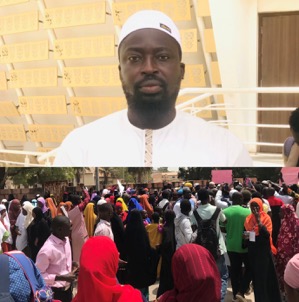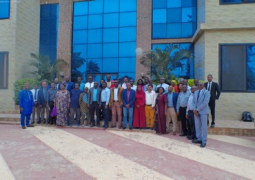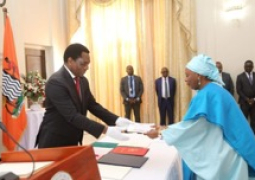
The NAM read the bill for the first time in parliament before the lawmakers, advocates and religious leaders among others.
“We are decent people and protected by the religion and culture. This bill is for us to maintain peace, law and order because we believe that the law is discriminatory; it’s a law that protects one side and deter others,” he flagged in an interview.
The Bill according to Hon Gibba, seeks to lift the ban on female circumcision in The Gambia, “a practice deeply rooted in the ethnic, traditional, cultural and religious beliefs of the majority of the Gambian people. “It seeks to uphold religious purity and safeguard cultural norms and values. The current ban on female circumcision is a direct violation of citizens' rights to practice their culture and religion as guaranteed by the Constitution,” he stressed.”
He further stated that given The Gambia's predominantly Muslim population, any law that is inconsistent with the aspirations of the majority of the people should be reconsidered.
“Female circumcision is a culturally significant practice supported by Islam, with clear proofs of the teachings from our Prophet (S.A.W). It is to be noted that the use of laws to restrict religious or cultural practices, whether intentional or otherwise, can lead to conflict and friction.”
“Interestingly, the continued existence of the ban on female circumcision and penalizing practitioners has directly contradicted the broader principles of the United Nations, which encourages, through its agencies, the preservation and practice of cultural and historical heritages,” he alluded.
“It is important to challenge the terminology used by anti-female circumcision movements, who label the practice as "mutilation." Properly conducted circumcision, as per religious guidelines and teachings, is not and cannot be deemed mutilation. Emphasizing this distinction is crucial in addressing concerns raised by activists.
Revoking the ban on female circumcision will allow people to indulge in the practice with all its precautions, guided by religion, diligence and care,” he emphasized.
“We want to repeal the law to ensure equality if anyone who wants to practice should and anyone who doesn’t should not.”
The second reading is slated for 18th March 2023 when members of parliament will debate on whether or not to lift the ban.




